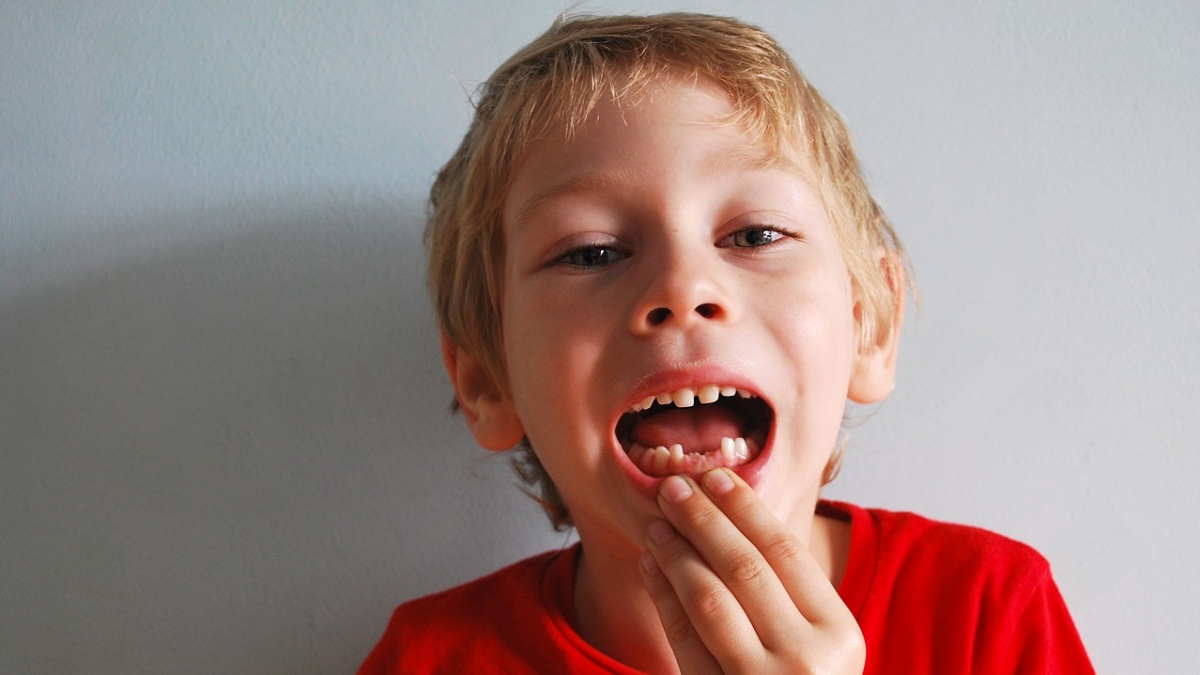According to the National Institute of Dental and Craniofacial Research and the Centers for Disease Control and Prevention, nearly 23% of children age 2 to 5 showed signs of cavities in their baby teeth as recently as 2011–16. That number jumped to just over half (52%) for 6- to 8-year-olds.
That’s a lot of cavities. Preventing tooth decay in baby teeth is essential to avoid potential complications such as losing teeth too early, speech delay, breathing problems and future dental treatments such as braces or extractions.
Rachael Maddox, pediatric dentist and faculty associate at Arizona State University, has nothing against the tooth fairy, but she wants kids to hold on to their baby teeth for as long as possible.
“Parents often ask me a variety of questions, including when to start brushing their children's teeth and how to go about brushing their children's teeth and when there may be cavities,” she said. “They ask, ‘Well, why even bother dealing with those cavities if those baby teeth are just going to fall out?’”
Passionate about ensuring that children have access to whole-person health care, Maddox has spent time serving families in low-income neighborhoods and has volunteered on service trips to remote areas in Arizona and Mexico that have little to no access to dental care.
Today, she brings her enthusiasm for dental education to the courses she developed for the College of Integrative Sciences and Arts’ Bachelor of Science in applied biological sciences (pre-dental) degree program, offered through ASU Online and in-person at ASU Polytechnic campus.
“Childhood tooth decay is one of the greatest health issues that affects children today,” she said.
Top questions parents ask
• When should I start bringing my child to the dentist?
• What is the value of maintaining baby teeth if they’re just going to fall out?
• What are some of the concerns with child cavities?
• Besides regular brushing and flossing, how can I prevent cavities in my child?
Cavities are sneaky — they are often difficult to see with the naked untrained eye and aren't sensitive or painful until they are very large or have progressed into the nerve. As such, most tooth decay requires a dentist to accurately diagnose.
A large part of a pediatric dentist’s role in children’s oral health is partnering with families to get a jump-start on preventing tooth decay in the first place, more so than surgically addressing it with fillings, crowns or extractions later on.
Turns out, baby teeth — and accessible pediatric dentistry — are more valuable than many might think.
We spoke to Maddox about the importance of baby teeth, as well as questions and concerns parents of her patients have asked.
Question: What do people need to know about baby teeth?
Answer: Baby teeth play a vitally important role in a child's growth and development. One of the primary roles of a baby tooth is preserving space and functionality for the adult tooth growing underneath it. If a child were to prematurely lose a baby tooth, their body could naturally take up the space from that missing tooth and crowding may ensue, which blocks the adult tooth from having the space or availability to grow into the mouth.
Q: When should parents start bringing their child to the dentist?
A: Establishing a child's dental home very early on is ideal. The current recommendation is either by eruption of the child’s first tooth or first birthday.
I always remind parents that their role in their child's oral care is far more important than mine. They see me a couple times a year, but they see their child every single day. When I counsel families on how they can improve their child's oral health at home, I tell them it starts with good habit building — meaning that we're brushing and flossing two times a day with mineral-based toothpaste. Those are the basics of oral hygiene. And starting that as early as when a child gets their first tooth is not too soon. I've never had a parent regret flossing, ever.
Q: What is the value of maintaining baby teeth if they’re just going to fall out? And what if a child gets a cavity?
A: I work with families on prioritizing brushing and flossing their children's teeth, not only for their overall oral health, but also because our teeth play a really important role in how we speak, how we function, how we eat and how we even breathe. Plus, a healthy smile is also usually a beautiful smile.
In talking with parents and patients about cavities, I often consider how close a tooth is to falling out, the age of the child, and how well a child may or may not tolerate treatment based on their development and maturity. If a baby tooth is very near falling out, I may advise a parent that it’s OK to monitor the cavity until the tooth falls out.
However, when a child is much younger and gets a cavity on a baby tooth, I first like to review current hygiene and dietary practices that the family has to determine how the cavities came to be. I tend to joke that cavities don’t happen by accident, so working with families on where their struggle points may be can help to prevent cavities in the future and reduce the progression of current cavities.
I then address how we go about managing cavities. It can range from something very conservative such as monitoring or applications of fluoride to considering a filling, crown or even recommending removal of that tooth, if necessary. It all depends on whether that tooth is an important tooth in that child's mouth based on their age and stage of development.
Q: What are some of the concerns with cavities?
A: A cavity is essentially a hole in a tooth. The word "cavity" comes from cavitation (or hole). What happens is the bacteria in your mouth will eat the sugars that you eat and ferment those sugars, causing acid to be produced. Our teeth are basically rocks, so when that acid wears away at the tooth structure, it causes a hole to form. The problem is our teeth don't heal like any other part of our body. The hole is not going to restore itself. That's where you're going to go to a dentist to seek treatment.
My first concern is always pain. Pain with cavities is a very real, deep and uncomfortable pain that is not often solved by over-the-counter medications or remedies at home. When there is pain, children are often less likely to consume food or beverages, meaning that they're more easily dehydrated, and that can cause other illnesses and concerns.
My second concern with cavities is that they can lead to infection. This can be localized, meaning that sometimes they'll just get a small bubble in their gums. We call that an abscess. It can be addressed with treatment as well as an antibiotic. But sometimes infections don't stay localized, meaning the cavity has gotten to the point that the infection has gone into the bloodstream and can potentially affect the brain and body.
Ultimately, we want to prevent cavities from happening at all. We always say one of the best predictors of a cavity is a history of cavities. It comes back to prevention and working with families to change habits, both dietary and hygiene, to improve future outcomes and reduce cavity risk going forward.
Q: Besides regular brushing and flossing, how can I prevent cavities in my child?
A: Having good dietary habits from an early age is going to highly reduce cavity risk in the future.
This means picking nutritious foods that are not highly cariogenic (cavity-causing) and consuming unsweetened and noncarbonated beverages like water. Sorry to say, water is one of the only things that doesn't cause cavities!
When I talk to parents about juice drinking, what I usually describe to them is that it's not how much juice their child is drinking, but how frequently they're drinking it. In other words, cavities are not caused by how much sugar we consume but by how frequently we consume it. If your kid is a big juice drinker, I’d suggest having juice only with meals. That way they're focused, they're sitting in one place, they drink it and they’re done. Then we can prioritize water in the other periods of the day.
More Health and medicine

New study seeks to combat national kidney shortage, improve availability for organ transplants
Chronic kidney disease affects one in seven adults in the United States. For two in 1,000 Americans, this disease will advance to kidney failure.End-stage renal failure has two primary…

New initiative aims to make nursing degrees more accessible
Isabella Koklys is graduating in December, so she won’t be one of the students using the Edson College of Nursing and Health Innovation's mobile simulation unit that was launched Wednesday at Arizona…

Reducing waste in medical settings
Health care saves lives, but at what cost? Current health care practices might be creating a large carbon footprint, according to ASU Online student Dr. Michele Domico, who says a healthier…



